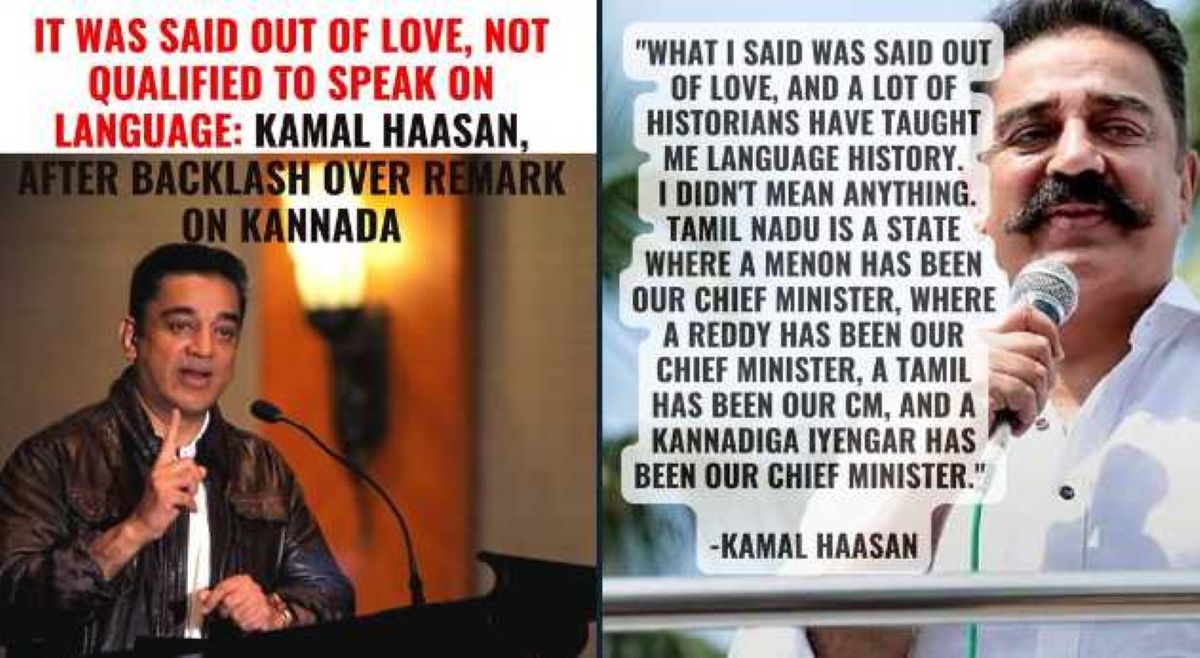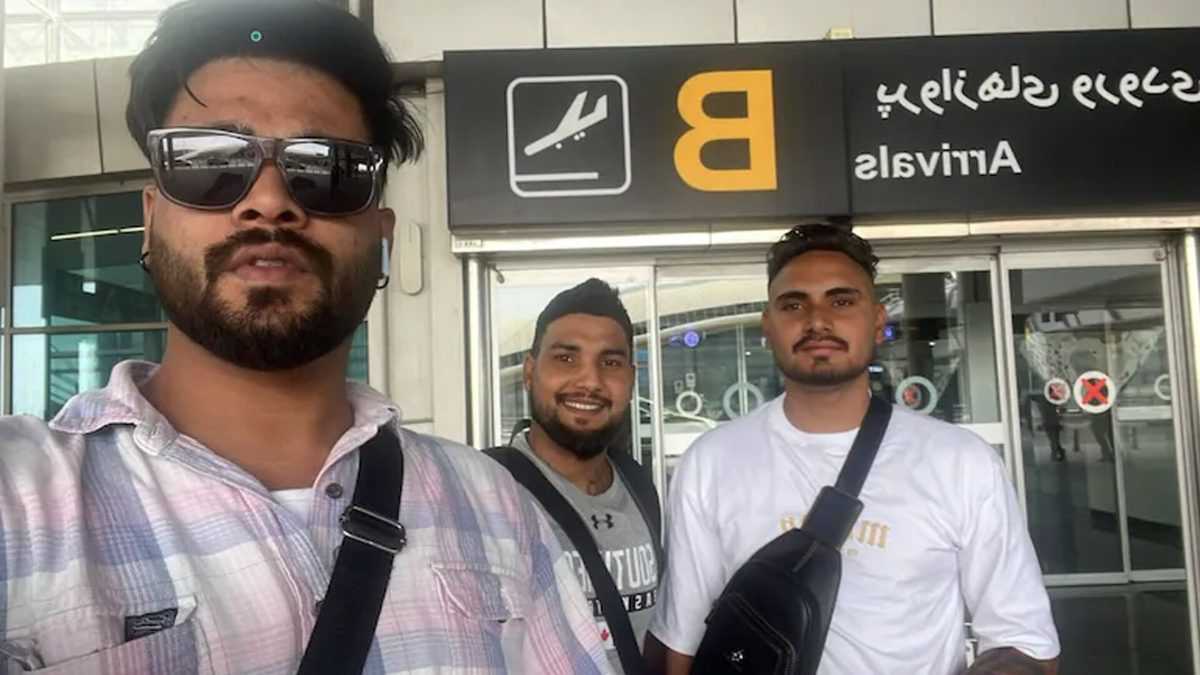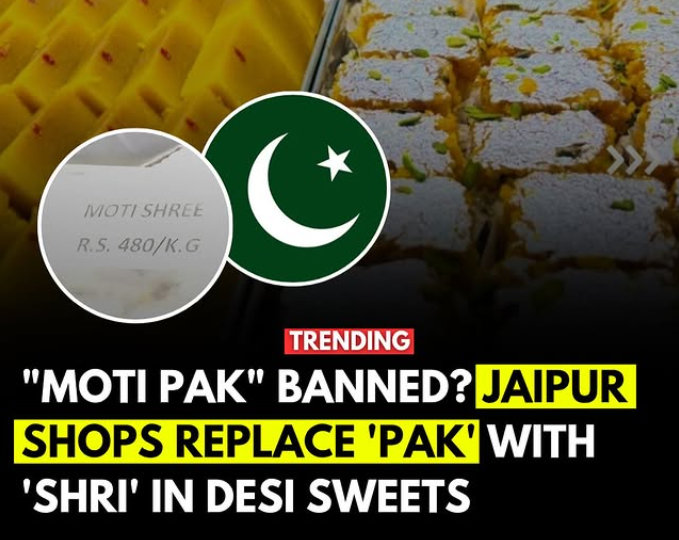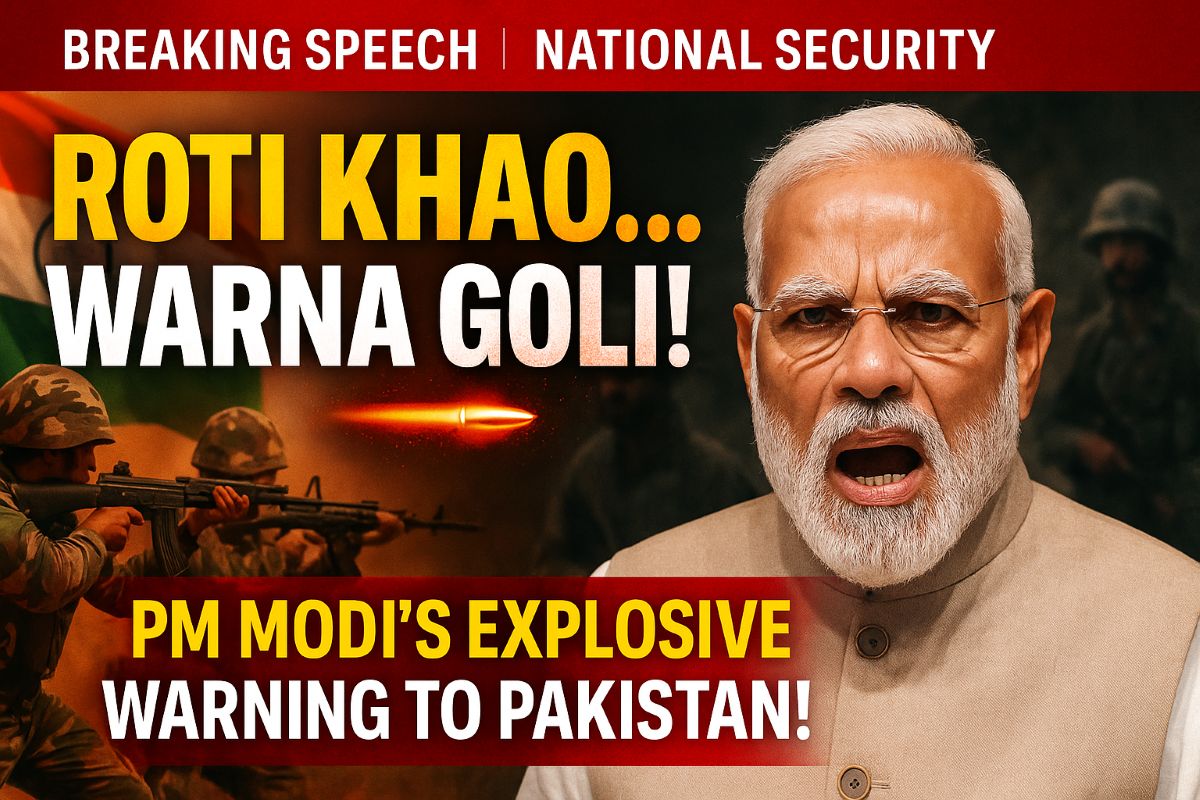
Prime Minister Narendra Modi has once again stirred national and international attention with his latest remark aimed at Pakistan. During an address that emphasized India’s military strength and unwavering stance against cross-border terrorism, PM Modi declared, “Roti khao, warna meri goli to hai hi” — a stark and bold warning that has resonated across India’s political and defense corridors. The statement, wrapped in his characteristic assertiveness, wasn’t just rhetoric; it was a reflection of India’s growing strategic confidence under his leadership.
The remark was made during a rally in Rajasthan, a region often spotlighted due to its proximity to the India-Pakistan border. The Prime Minister, addressing a large gathering, celebrated the courage of Indian soldiers and reiterated India’s zero-tolerance policy toward terrorism. As Modi continues to strengthen his political narrative ahead of the 2024 elections, such messages have a significant impact both domestically and internationally.
PM Modi’s Bold Statement: “Roti Khao, Warna Meri Goli To Hai Hi”
At the center of the controversy — and attention — is PM Modi’s fiery comment:
Roti khao, warna meri goli to hai hi”
This line, loosely translated as “Eat bread, or else my bullet is ready,” has sparked intense debate and praise across political circles. While critics call it aggressive and inflammatory, supporters hail it as a strong warning to enemies of the nation — particularly Pakistan and terrorism proxies.
This remark was contextualized within a broader speech in which PM Modi praised Indian soldiers and made it clear that India would no longer adopt a defensive posture. According to his statement, gone are the days of silence and diplomacy in response to provocation. Instead, the new India believes in replying to terrorism “in the language it understands.”
Pm Modi’s Warning and the Pakistan
This statement cannot be viewed in isolation. It came amid rising concerns about cross-border infiltration and terror threats. In recent months, reports from intelligence agencies indicated renewed attempts by terrorist organizations to enter India through the LoC. In response, Indian security forces have increased their patrolling, and there is growing speculation that India could once again take pre-emptive action if provoked.
India has long suffered from cross-border terrorism originating from Pakistani territory, and the Indian government, especially under PM Modi’s leadership, has adopted an increasingly assertive strategy. This includes surgical strikes and airstrikes — most notably the Balakot airstrike in 2019 — in retaliation to the Pulwama terror attack.
A Pattern in PM Modi’s Messaging: From Surgical Strikes to “Sindoor Goli”
This is not the first time PM Modi has used strong language to drive home India’s military resolve. Earlier, his administration publicly acknowledged Indian surgical strikes inside Pakistani territory — something previous governments avoided highlighting. His rhetoric often combines nationalism, emotional appeal, and aggressive diplomacy — a mix that has won him both supporters and detractors.
In the same series of speeches, PM Modi referenced “Sindoor Goli”, a symbolic term to describe India’s strong retaliatory capability. The Sindoor Goli operation, whose logo and planning have now come into the public domain, has become a key talking point.
Let’s look at the team behind this operation.
Source: The Print
Meet the Armymen: Faces Behind Operation Sindoor
Behind every strong policy or military action are the bravehearts who risk their lives to protect national sovereignty. Two names stood out in the aftermath of recent disclosures — Lt Colonel Harsh Gupta and Havaldar Surinder Singh — who played key roles in conceptualizing the Operation Sindoor identity.
According to the Indian Express report, these two officers were instrumental in designing the logo that now symbolizes India’s readiness to act decisively in times of national security threats.
Thank you Vadodara!
Extremely delighted to be in this great city. It was a splendid roadshow and that too in the morning! Gratitude to all those who showered their blessings. pic.twitter.com/InjK4QfyUJ
— Narendra Modi (@narendramodi) May 26, 2025
Source: PM Narendra Modi
What is Operation Sindoor?
Operation Sindoor is a symbolic term that encapsulates India’s intent and ability to carry out pre-emptive or retaliatory actions when faced with terror threats. While full details of the operation remain classified, sources suggest it reflects both strategic planning and psychological warfare aimed at deterring hostile neighbors.
Lt Col Harsh Gupta, known for his planning acumen, and Havaldar Surinder Singh, a field veteran, collaborated on the branding of the mission.
The use of the word “Sindoor” (a red mark symbolizing sacrifice and honor in Indian tradition) added emotional gravitas to an otherwise strategic exercise.
This is in line with PM Modi’s broader messaging style — combining traditional values with modern strategy.
Read More About: Operation Sindoor: PM Modi’s Strong Warning to Pakistan as Tensions Escalate
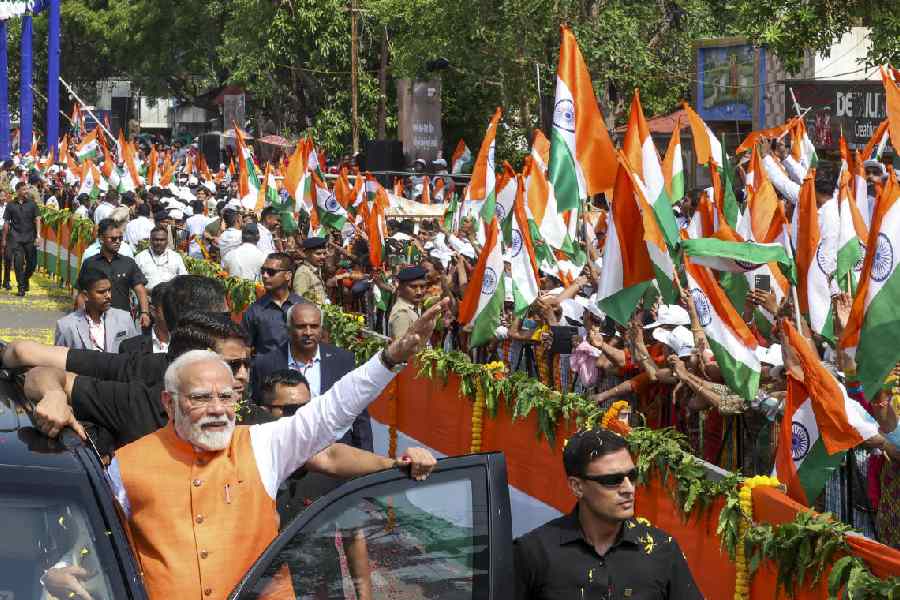
Source: telegraphindia
Pm Modi’s Messaging Strategy: Tough Talk, Tactical Moves
Why Strong Rhetoric Works
PM Modi’s use of emotionally charged and powerful language, including the now-viral “Roti khao, warna meri goli to hai hi,” has been part of a long-standing communication strategy. He speaks directly to voters’ emotions — patriotism, security, fear, and pride. For the common Indian, such lines reinforce trust in a strong leader during volatile times.
Bullet Points on Modi’s Security Messaging:
- Reinforces national unity and pride
- Sends a clear warning to adversaries
- Motivates soldiers and defense personnel
- Helps in electoral narratives around “strong leadership”
- Resonates with India’s global positioning as a bold player
Pakistan’s Reaction: Silence or Strategy?
While the Indian public sphere has been flooded with reactions, Pakistan has maintained its usual diplomatic silence on this particular remark. However, sources in the diplomatic community suggest that back-channel messages have been exchanged, urging de-escalation.
In the past, such strong remarks have led to increased tension at border areas, with both countries placing forces on high alert. However, since the Balakot strike, India has consistently shown a policy of proactive aggression — not waiting to be attacked before retaliating.
Domestic Reactions: Applause and Criticism
Supporters’ View
For BJP and Modi supporters, this was yet another moment showcasing Modi’s decisiveness and spine. Social media was flooded with praise, memes, and quotes celebrating the line as a “masterstroke” and “real leadership.”
Opposition View
Opposition parties, including the Congress, criticized the statement as “unbecoming” of a Prime Minister. They argue that such aggressive language can incite tension and harm India’s diplomatic image.
Still, BJP strategists believe such statements cement Modi’s image as a national protector — a strongman persona that has helped him win successive elections.
Modi’s Growing Bond with the Armed Forces
Beyond words, Pm Modi has continuously demonstrated his bond with the Indian military. From celebrating Diwali with soldiers at the border to pushing defense modernization reforms, he has prioritized military welfare.
In fact, the slogan “Roti khao, warna meri goli to hai hi” also symbolizes this deep connect — food and bullets both being metaphors of sustenance and protection.
PM Modi’s Words Are More Than Just Words
Whether one agrees or disagrees with the language used, there’s no denying that PM Modi knows how to deliver a message that reverberates. His “Roti khao, warna meri goli to hai hi” line has already entered the political lexicon and will likely be quoted for years — especially during campaign seasons.
As India navigates its relationship with Pakistan, tackles border threats, and boosts its global image, such moments — speeches, slogans, and operations — contribute to the larger story of New India.
And behind every line like that stands not just a political leader, but also the soldiers, officers, and strategists who silently serve — like those behind Operation Sindoor.
